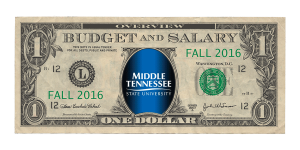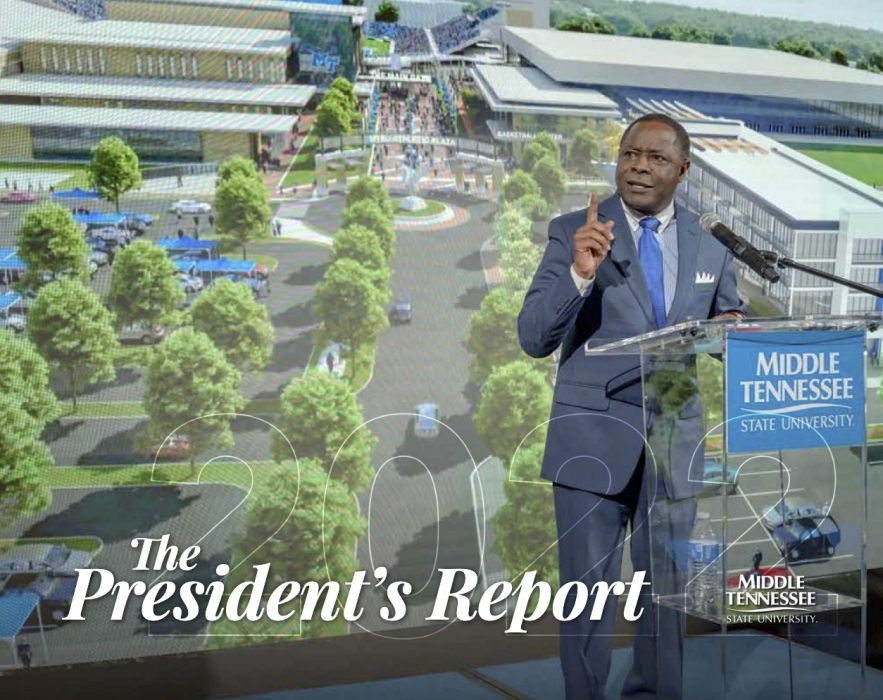Budget and Salary Overview Fall 2016
Filed Under: President's Post, Featured Articles
The final state budget as proposed by Gov. Haslam and approved by the state legislature included a reduction of $1 million in state funding for MTSU under THEC’s Outcomes Based Funding Formula.
That decrease, however, was offset by an increase of $4.7 million in enhancement funds. While I am pleased the net result mitigates the decline in formula funding, the reality is that we still needed every penny of those enhancement funds to help move our programs and facilities forward. Now, because of the shortfall in one bucket, we will have less in the other.

The Tennessee Board of Regents increased our tuition by 2.6 percent this fall. Again, while we welcome the increase in revenue, it, too, will fall short in covering our increasing costs.
For the first time, the salary increases proposed by the governor for state employees did not include higher education. While we are all state employees, we at the colleges and universities did not receive funding to pay for the 3 to 4 percent pay increase proposed for those working in other areas of the government.
The state, however, is allowing higher education institutions to use funds from appropriations for increases. But that’s the same money that we need to cover inflationary costs, repair and purchase crucial computers and technology, and perform long-overdue maintenance on our aging infrastructure.
Also, we are left on our own to determine how to meet the new Fair Labor Standards Act provisions that go into effect Dec. 1. We anticipate a significant number of administrative positions at the University will become non-exempt positions, which will require those individuals to report hours worked. This change will have a significant impact on the University’s budget as well.
So, again, we are faced with hard choices. As such, I intend to seek approval from the TBR in September to raise the salaries of faculty identified in the salary survey as being below the established pay range to the minimum of their range.
Any remaining monies that we can devote to pay increases will be used in a small cost-of-living increase for all unrestricted and restricted regular full-time and part-time benefit-eligible employees and participants in the post-retirement service program on the payroll as of June 30, 2016.

Each eligible employee will receive a minimum of a 1 percent pay increase of their salary. The final percentage increase will not be determined until our fall enrollment figures are known. Unfortunately, this increase will not apply to adjunct faculty, temporary employees, graduate assistants, or student workers.
If grant funding is available, increases for grant employees will be charged to the appropriate grant, and increases for auxiliary employees will be funded from auxiliary revenues.
If approved by TBR, all increases will be effective Oct. 1, 2016.
The state again provided funding to match eligible employees’ deferrals in the 401(k) plan, which may be between $20 and $50 per month, and for longevity payments at $100 per year of creditable service up to a maximum number of 30 years.
"I'm pleased that we have been given funding to make our building more serviceable." - MTSU President Sidney A. McPhee
Another bright spot in the state budget was the $6.7 million in capital maintenance funds for MTSU. Improvements include Saunders Fine Arts Building HVAC updates, energy recovery boiler repair, electrical updates, building automation system control panel replacements, and exterior repairs to several buildings. I’m pleased that we have been given funding to make our building more serviceable.



